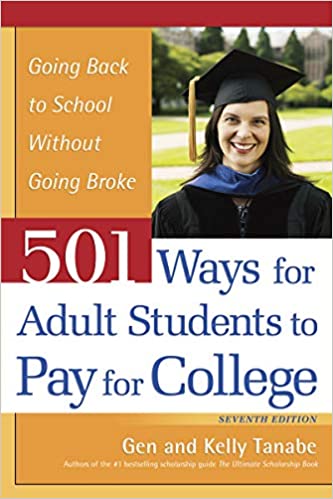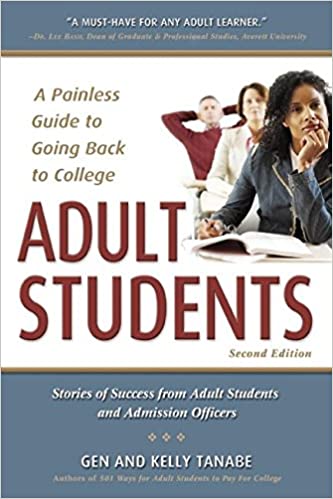4
Don't ignore your college or university.
Every college administers its own financial aid programs and has a certain number of scholarships that it awards to its own students. One common misconception about college scholarships is that you must be a full-time student to receive them. This is not always true. The University of Minnesota College of Continuing Education, for example, offers both merit- and need-based scholarships for adult students who are enrolled as full- or part-time students. There are awards that cover a broad range of adult programs, including non-admitted students enrolled in credit courses, degree and certificate students and students enrolled in non-credit continuing professional education and personal enrichment courses. The University has also developed eligibility requirements that are friendlier to adult students. Qualifying for their need-based scholarships, for example, is less complicated since financial status is determined by current income rather than previous tax year income as is the case with most mainstream financial aid programs. This means that many more adults will qualify than they would under traditional guidelines. The University looks at other issues such as disability, previous access to education, time available for paid employment and the demands of juggling multiple roles of work and family when awarding scholarships. The University has a useful web site for prospective adult students at: http://www.cce.umn.edu. While geared toward Minnesota residents, it still provides useful information to all adult learners.
5
Make an appointment to speak with someone in the financial aid office and a faculty member or advisor from the department of your major.
If you are already in college (or even if you just live near one), pay a visit to the financial aid office. This office serves as a clearinghouse for scholarship opportunities at your school and within your community. Many financial aid offices maintain a list of scholarship opportunities. Even if you are not receiving financial aid, you can still make an appointment to speak with a financial aid officer about the various scholarship opportunities at the college.
Almost all colleges have a financial aid web site. It's tempting to explore this web site instead of actually visiting or calling the office. But this can be a mistake. Financial aid offices are notoriously understaffed and overworked. Updating their web site may not be high on their list of priorities. So be sure to speak to a real person to ask specifically about scholarships.
One of the most valuable people at your college is not the president of the school, the dean or even your favorite professor; it's the administrative assistant of your department. This one person knows more about what happens in your major than any other person. Take some time to talk to your department's administrative assistant. Ask him or her about what kind of scholarship opportunities and competitions are available to students with your major.
Here are just a few examples of what you might find. The University of Massachusetts at Amherst has such scholarships as the Philip Weiss Memorial Scholarship for students majoring in Judaic Studies, the Butterworth Scholarship for juniors and seniors studying floriculture or ornamental horticulture and the Stephen R. Kellogg Scholarship for sophomores in the civil and environmental engineering department. Just asking around within your own major will turn up a lot of possibilities.
6
Find your adult education center or continuing education center and career services office.
Many colleges now have adult education or continuing education personnel. Some schools have a separate department or center for adult education while others may employ an adult education specialist that works in the admissions or financial aid office. Call or visit the office to ask what special services or resources they have for adult students. Even before it's time to find a job with your newly minted degree, you can take advantage of your college's career services office. Most career services offices maintain lists of scholarships, in particular those that might help you get a summer internship or work during the term. Don't wait until your last year in college to see what the career services office has to offer.
7
Search scholarship databases.
We suggested that you start your scholarship search by looking locally in your own community, and then expand it by exploring the resources that are offered by your college. Now it's time to explore the rest of the country to find scholarships.
The Internet puts the world's biggest library at your fingertips and allows you access to an unprecedented amount of information. It can also be frustrating. The problem with searching for scholarships online is that there is no filtering. Type in the word "scholarship" into a search engine and you'll get over five million results. Only a tiny fraction of these results will actually be useful to you. To solve this problem of too much information, there are specialized web sites that let you search databases of scholarships. They work by asking you to fill out some information about yourself. Then, with the click of a mouse, you are matched to scholarships that you may apply to win.
Sound too easy? In some ways it is. So don't rely on these web sites to find every scholarship that's right for you. Many students make the mistake of assuming that once they do an Internet search, they have exhausted all sources for scholarships. The reality is that no matter how many scholarships these web sites claim to have in their databases, none of them even comes close to the total number of scholarships that are available. Plus, none of these web sites does a good job of listing local scholarship opportunities—which as you've just seen, offer you some of the best chances to get free cash for college.



